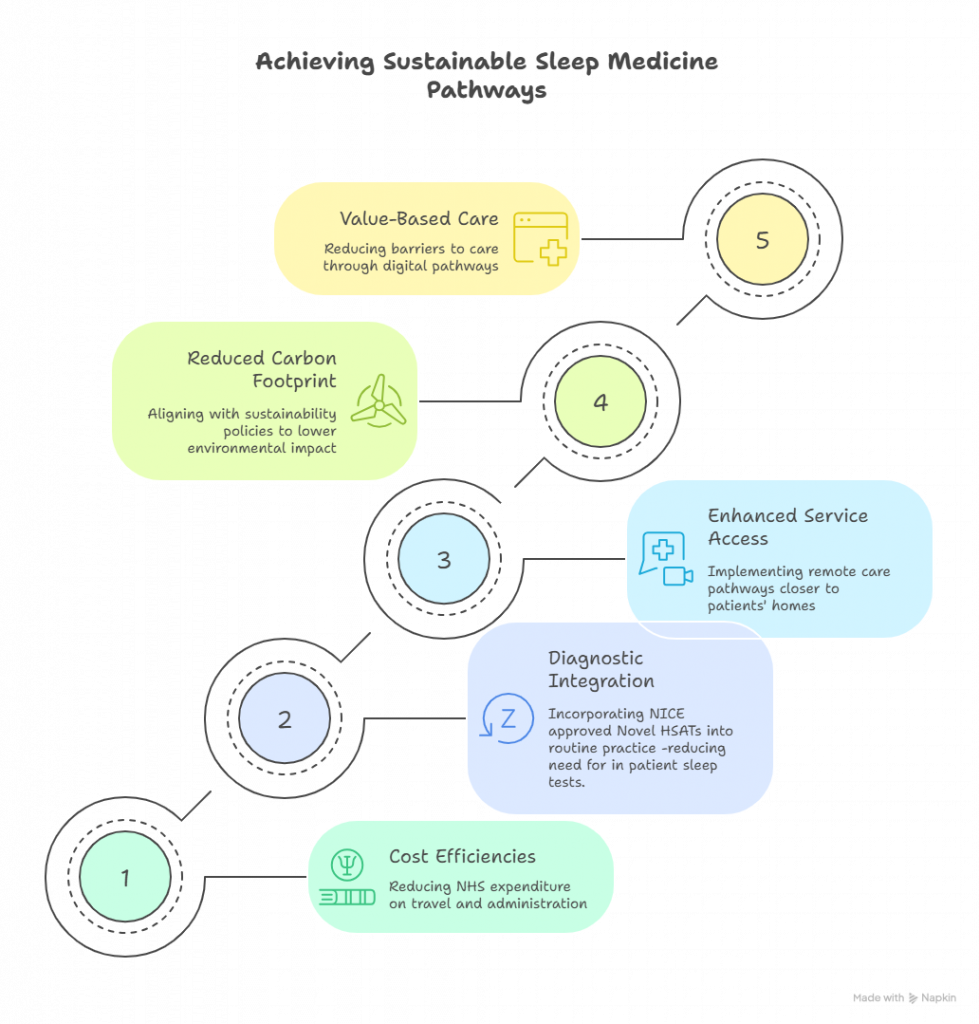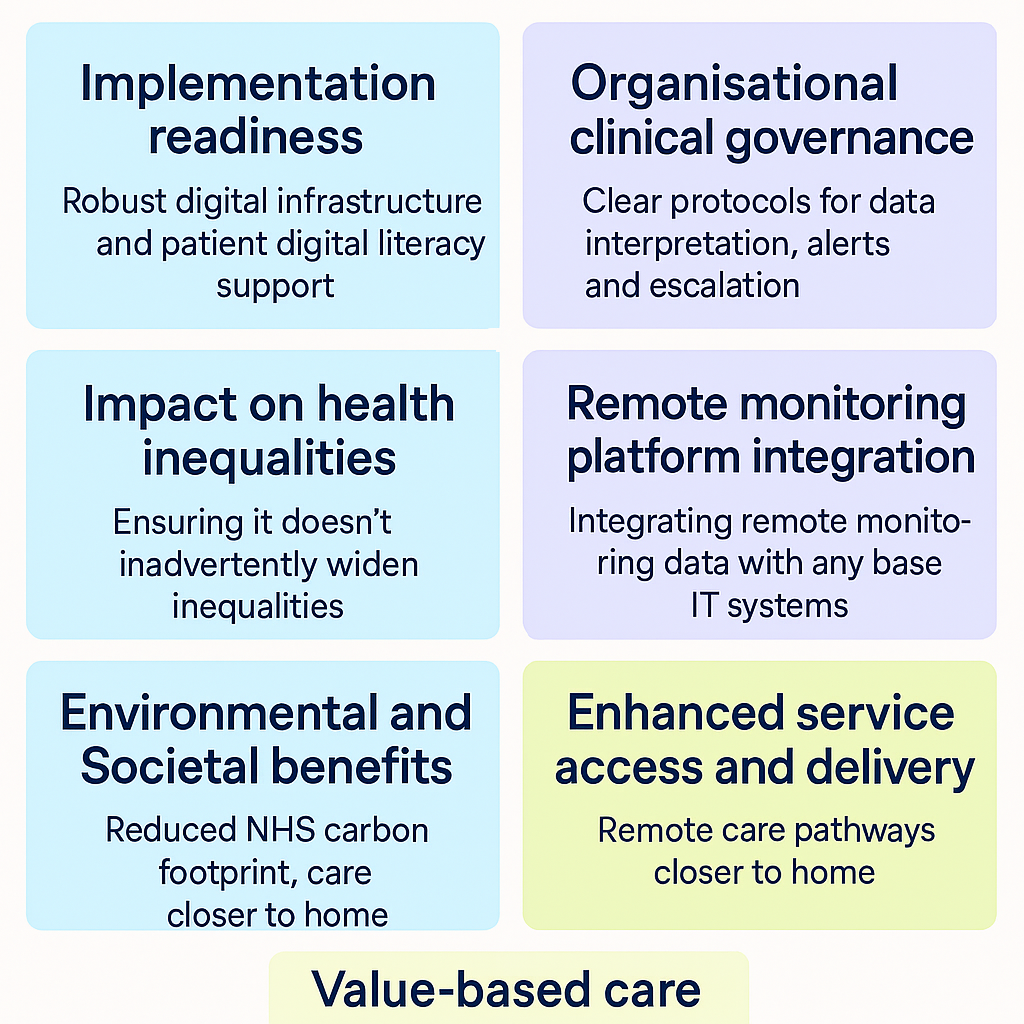The NHS Fit for Future 10 year plan sets out a roadmap and leverages advancements in technology enabled care, medicines, and innovations to provide improved care for every patient—regardless of their location or financial situation—and to deliver greater value for taxpayers. Telemonitoring of people who use CPAP/APAP therapy and Non-Invasive Ventilation (NIV) therapy are already well placed within the vision of the 10 year plan. The British Sleep Society (BSS) have published the Optimal Sleep Pathway published in February 2025 which sets out a pathway for sleep medicine services to modernise and improve the patient journey from diagnosis to treatment (2).
Remote monitoring and Health Policy Considerations
There are a number of considerations at a policy level that need to be addresses with regard to realising the vision of the NHS Fit for Future 10 year plan and the Optimal Sleep Pathway with the widespread adoption of remote monitoring in the sleep medicine patient pathway:
- The ultimate aim of both of these is to improve patient outcomes at a UK level.
- Achieving cost efficiencies at a service level with lower NHS expenditure on travel, administration, and postage that may almost half clinic attendance rates and eliminate missed appointments
- Integrating less resource-intensive diagnostic processes with the use of NICE guideline approved novel Home Sleep Apnoea Tests in to routine practice.
- Enhanced service access and delivery by implementing remote care pathways closer to patients homes where it is safe to do so.
- Environmental and societal benefits such as reducing the overall NHS carbon footprint and providing equitable care access that aligns with the wider UK government and NHS sustainability policies.
- Implement value based care by reducing barriers related to geography and digital literacy through well-designed and streamline digital pathways.

Further Considerations

With regard to remote monitoring in the Sleep medicine patient pathway this is now well integrated in the vast majority of services across the UK with many services offering remote teleconsultation as a choice for follow up and help reduce unecessary out patient appointments. Remote monitoring and teleconsultation represents an important advancement in modernising sleep medicine services and treatment, providing significant benefits while necessitating careful planning and implementation to maintain patient safety, accessibility, and clinical excellence in line with the NHS 10 year plan and NICE guidelines.
References:
